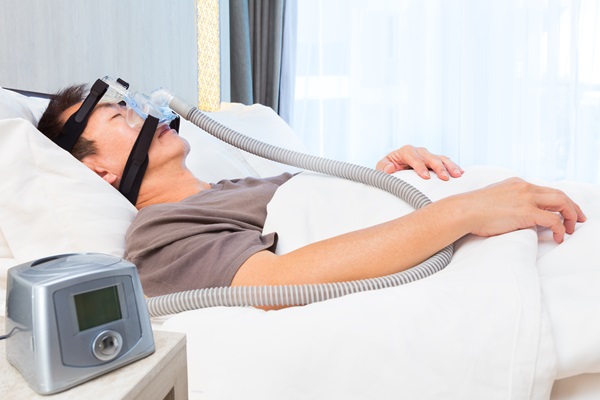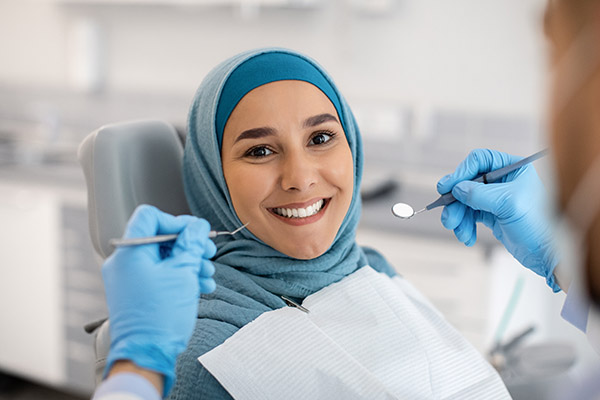Dental Appliances for Sleep Apnea

OSA, or obstructive sleep apnea, is a health issue that should receive proper treatment. Your dentist can help you manage this disorder with the proper dental appliance. The oral device will be custom-fit for your needs. Here are the dental appliances that can help with your sleep apnea.
Sleep apnea and oral appliances
This problem involves the blockage of the airways because the throat and mouth muscles relax when one sleeps. The blockage stops the person’s breathing. When this happens, the individual wakes up, gasping for air. The pauses in breathing can happen many times each night. It then results in inadequate sleep.
Sleep apnea can trigger the onset of different conditions, such as Type II diabetes and high blood pressure. The individual can even suffer from daytime sleepiness, which can be dangerous if the person drives or does risky work. The dentist can create custom-fit dental appliances to stabilize the tongue and keep the air passage open. These devices also change the jaw position to provide more room in the mouth.
TRDs or tongue-training devices
The dentist can suggest a TRD for people with moderate sleep apnea. This device can keep the tongue in place with soft silicone or plastic. It rests around the tongue. The TRD prevents the tongue from falling into the throat and obstructing the air passages.
MADs or mandibular advancement devices
These devices are for people with mild to moderate sleep apnea. The dentist will use hard plastics in creating MADs. The device will hold the jaw forward while the patient sleeps. It will be custom-fit. It covers the gumline, lower teeth, and upper teeth.
The dentist can tighten it to push the lower jaw forward. The adjustment can happen if sleep apnea still happens. The MAD will attach by means of metal springs or hinges. These attachments allow the lower jaw to move a little bit forward.
Mouthguards
The dentist will create custom-fit mouthguards for sleep apnea. The fit must be good so that the mouthguard can keep the lower jaw in a forward position. It will prevent the soft palate and tongue from falling into the back of the mouth. The mouthguard will keep these structures from blocking the air passages while sleeping. This device is an effective option for those who cannot tolerate a TRD or MAD.
Treating sleep apnea with dental appliances
Custom-fit oral devices can treat this sleep disorder if the individual is a good candidate. The sleep doctor will determine if the individual can have dental appliances for sleep apnea. People with mild to moderate apnea can use oral devices to treat this disorder. The sleep doctor will decide if the patient will need more treatment in the form of CPAP therapy.
Dental device option for sleep apnea in kids
Children can also develop this disorder. The sleep doctor may suggest a rapid maxillary expansion or RME. This dental appliance can expand the roof of the child’s mouth. The goal is to open the child’s air passages.
The dentist will place a custom-fit expander over the back teeth. This will push the upper molars out. The child must wear this sleep apnea device at all times. Doing so will adjust the arched or narrow hard palate. An RME can end the child’s sleep apnea later in life by changing the mouth anatomy at an early age.
The benefits of dental appliances for sleep apnea
A person with sleep apnea needs an effective treatment. The sleep doctor will assess the individual first. If the patient cannot tolerate CPAP therapy, a dental appliance can treat sleep apnea. Below are the benefits of oral appliances:
- Dental devices are portable. They are good for people who travel most of the time. Placing them in the carry-on bag will not be a problem.
- The appliances are easy to handle and use. Wear it and sleep. There will be no tubing or cords to worry about. Setting up a machine is not necessary either.
- They are quiet. Wearing them while sleeping will not disturb the person in the same bed.
- The devices are custom-fit. This allows the appliances to be secure in place.
Some side effects
Any treatment has its possible disadvantages. Wearing a dental appliance for sleep apnea is not an exception. The sleep doctor and dentist will explain each as part of the treatment plan. Here are a few of the common side effects:
- Soreness of the gums, jaw, and teeth is natural
- Excessive saliva or dry mouth may happen
- There will be difficulty speaking during the early days
Dental appliances for sleep apnea can help treat or manage the symptoms
It is not easy to deal with sleep apnea every night. Kids and adults can have this sleep disorder. The sleep dentist can help by providing the right form of therapy. Oral appliance treatment can help by repositioning the jaw or preventing the tongue from collapsing. Wearing these oral appliances can help you achieve better health.
Request an appointment here: https://drdavidbrumbaugh.com or call R. David Brumbaugh, DDS at (214) 306-4402 for an appointment in our Dallas office.
Check out what others are saying about our dental services on Yelp: Do I Have Sleep Apnea in Dallas, TX.
Related Posts
Sleep apnea disrupts breathing during sleep and increases the risk of daytime fatigue, headaches, and cardiovascular strain. A general dentist evaluates airway health during routine visits and identifies red flags such as snoring, grinding, and jaw crowding. When appropriate, the dentist collaborates with a physician to confirm a diagnosis, then offers practical options, often an…
Sleep apnea is a disorder in which your breathing stops and starts periodically throughout sleep. When this occurs, your body awakens you and tells you to start breathing again. Repeated sleep disturbances make it harder to sleep properly, and you will be especially fatigued throughout the day.Sleep apnea affects you beyond daytime fatigue. Without treatment,…
You probably have heard about sleep apnea, but there may be aspects of this condition that you do not understand. It can be a serious problem and may affect your overall health if you do not treat it. Many people who struggle with it may search for answers from a general physician. While this can…
If you are struggling with sleep apnea, you need to address the condition right away. This is not an issue that will generally go away on its own. It is also a serious problem that can lead to severe health challenges. Luckily, your dentist is a good resource to turn to for help. Your dentist…


